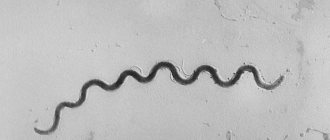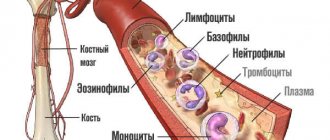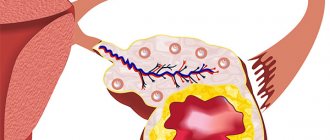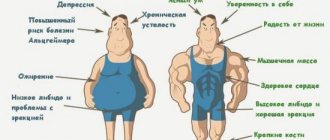This is what can cause a person to lose weight: he does not eat properly, the body experiences excessive physical activity, pathology develops, stress and nervous exhaustion are present in his life. Only a doctor can determine the specific cause of rapid weight loss. A decrease in body weight by 10-15% in 2-4 weeks (from initial values) for no apparent reason in the form of diets and exercise is a reason to undergo a medical examination.
Diabetes and weight loss
With diabetes, a person can either gain excess weight or unexpectedly lose pounds. Weight loss in diabetes occurs mainly for two reasons. Firstly, due to frequent urination, the body loses a lot of water. And secondly, due to blood sugar, the body absorbs calories worse. In addition, when there is a lack of insulin, the body begins to burn fat for energy, thereby causing overall weight loss.
According to research, significant weight loss is a common symptom of type 1 and type 2 diabetes. Weight loss in diabetes may be accompanied by other important signs of the disease: excessive thirst, constant fatigue, frequent urination, intense hunger, wounds that do not heal for a long time, tingling in the limbs, etc.
Causes of weight loss during pregnancy and the postpartum period
Weight loss is observed in pregnant women.
The reasons may be as follows:
- Toxicosis.
- Decreased immunity due to a viral disease.
- Stress.
- Lack of daily routine.
- Not proper nutrition.
- Smoking, drinking alcohol.
To prevent a pregnant woman from losing weight, she needs to avoid stress and bad habits.
Proper nutrition and daily routine are important. For women after childbirth, the reasons may be:
- Postpartum depression.
- More active life after the birth of a child.
- Hormonal changes.
- Breast-feeding.
Weight loss due to hyperthyroidism
Sudden weight loss and loss of appetite may indicate problems with the thyroid gland, in particular a disease such as hyperthyroidism. With it, there is increased activity of the thyroid gland and an excess of its hormones in the blood. This subsequently increases the metabolic rate and the body's ability to burn fat. In addition to rapid weight loss, signs of hyperthyroidism include: rapid heart rate, hot flashes, excessive sweating, mood swings, depression, panic attacks, bulging eyes, muscle weakness and fatigue.
Reason 6. Physiology
If a woman experiences severe weight loss, the disease will not always be the cause of this condition. Often this is just the work of the body, that is, various kinds of physiological processes. In this case, weight loss is possible:
- When natural aging of the body occurs (muscle mass decreases).
- Loss of teeth (a person simply finds it difficult to chew food).
- Various types of psychiatric disorders (a person may simply forget to eat).
- Alcoholism.
Stomach ulcer
People suffering from peptic ulcers also often suddenly begin to lose weight. Stomach ulcers are caused by inflammation that develops on the inside of the stomach wall or the upper part of the small intestine. This causes noticeable pain and leads to loss of appetite. Due to a person’s refusal to eat, frequent attacks of nausea and vomiting during a peptic ulcer, weight loss occurs. Some other common symptoms of this digestive system ailment are: a feeling of fullness after a few bites of food, bloody stools, chest pain, chronic fatigue.
I’m losing weight for no reason, which doctor should I go to? How do experts figure it out?
When you contact your doctor, you will receive a list of tests that you will have to undergo to identify the cause of the abnormal “behavior” of your body. Typically, doctors initially ask a series of questions, the answers to which can be thought out in advance.
- Have you recently had any severe intoxication, poisoning, or suffered from vomiting, diarrhea or nausea?
- Have you had any problems with your teeth? With long-term treatment, or even more so, prosthetics, patients often completely lose their appetite, which is why they begin to rapidly lose weight.
- Has your appetite decreased or are you continuing to eat as before?
- There has been no significant stress in your life recently, are you experiencing symptoms of depression, increased nervousness, mild excitability, aggressiveness, irritability?
- How do you feel about alcohol, narcotic and psychotropic substances, do you smoke cigarettes?
- Are there any other health complaints other than sudden weight gain? Have you had any pain lately?
If positive answers predominate, then losing weight may depend not on internal, but on external problems affecting you. Then the solution will lie in the area of behavior correction, for example, quitting smoking. It doesn’t hurt to immediately tell your doctor if you take any medications, use dietary supplements, stimulants, herbal teas, or stimulants. Weight loss is a worrying factor, so it makes sense not to put it off, but to immediately consult a doctor, even if in general you feel quite well.
Presence of parasites in the body
Various parasites that grow in the body are another common reason why a person begins to lose weight inexplicably quickly. The list of the most common human parasites includes: Giardia, as well as pinworms, nematodes and other worms. Most often, the parasite enters the body through the skin through contact with animals or the mouth through consumption of contaminated foods.
A person infected with parasites, as a rule, wants to eat all the time, but the calories entering the body go to fight the disease. Weight loss and increased appetite are not the only symptoms of parasites. They also include abdominal pain, anal itching, weakness, diarrhea and vitamin deficiency.
Reason 3. Impaired absorption
Why else can sudden weight loss occur? The reasons for women may relate to impaired absorption of nutrients, as well as hypermetabolism. In this case, all the beneficial vitamins and microelements that enter the body along with food are not absorbed, but are simply released naturally. As a result, the body still tries to take these microelements from somewhere, using up its own fat reserves (everyone, even the slenderest person, has and should have a layer of fat).
Depression
Although it may seem strange, depression can also lead to unintentional weight loss. This common mental disorder results in persistent feelings of sadness, loss, frustration or even anger, which can affect various aspects of daily life. Often in this case, appetite decreases, which causes weight loss. Research in applied physiology shows that during depression there is a tendency towards hypoglycemia, in which the levels of thyroid hormones (T3 and T4) decrease.
In addition to poor appetite, depression is characterized by poor concentration, negative and even suicidal thoughts, sleep problems and other difficulties. However, in some cases, during depression, a person gains excess weight, trying to get rid of problems through frequent meals of high-calorie foods.
Oncological diseases
Unexplained weight loss is one of the first noticeable signs of various types of cancer, including prostate, breast, lung, pancreatic, ovarian and colon cancer. The uncontrolled growth of abnormal cells accelerates the metabolism, causing the entire body to wear out, using its resources to the maximum. This leads to loss of muscle and fat mass.
When cancer cells begin to spread throughout the body, it can negatively affect the functioning of various internal organs. Cancer can cause chemical changes in the body that make it difficult to gain weight, even despite eating a high-calorie diet.
Cancer treatments, such as radiation and chemotherapy, also often lead to loss of weight and appetite. In addition to this, the treatment causes many side effects: nausea, vomiting, mouth ulcers, which makes the process of eating painful and uncomfortable.
Why does a person lose weight with a good appetite? Diseases that provoke weight loss:
1. Type 1 diabetes mellitus. This is a very common reason for weight loss. Please note: most people with type 2 diabetes are overweight and obese people. The first type of this disease leads to sudden weight loss. Moreover, patients experience increased appetite, constantly feeling hungry. This is due to the inability of glucose to flow from the blood into the cells of the body.
2. Pulmonary tuberculosis at an early stage can also cause sudden weight loss. A person suffers from loss of appetite, fatigue, begins to cough, sweats a lot, etc.
3. Thyrotoxicosis. This is a disease in which the metabolism is disrupted, it produces too many hormones, and the metabolism accelerates. Energy is consumed very quickly. Sleep disturbance occurs and nervous overexcitation appears. These and other problems lead to increased appetite. But even with large food consumption, a person continues to lose weight.
4. Oncological diseases in most cases cause weight loss. Malignant formations draw glucose from the blood, leaving it for the development of the body. In the later stages of the disease, severe exhaustion of the body is often observed.
5. Dysbacteriosis very often causes loss of appetite. In some cases, eating is accompanied by painful sensations in the abdomen. This causes fear of pain from eating, which leads to refusal of food and weight loss.
7. Chronic psychogenic stress mobilizes all the body’s forces to solve a complex problem. A lot of energy is spent, which reduces body weight. Too much stress can lead to serious illness.
8. Alcohol abuse also leads to gradual weight loss. Alcohol affects the gastrointestinal tract and causes loss of appetite.
We have considered only some of the reasons. But already from them we can conclude that this sudden loss of weight can be a symptom of a very dangerous disease.
If you are rapidly, uncontrollably losing weight without apparent reason or effort, then this can be an extremely dangerous factor that requires timely diagnosis and comprehensive treatment.
Crohn's disease
This is an intestinal disease caused by inflammation of the lining of the digestive tract. One of its symptoms is sudden weight loss. This occurs due to decreased appetite, food apathy, poor absorption of nutrients, loss of calories due to frequent diarrhea or gastrointestinal bleeding. Crohn's disease is characterized by relatively low levels of hunger and loss of pleasure from eating. Other symptoms of the disease: low-grade fever, diarrhea, decreased energy, cramps, abdominal pain, nausea and vomiting.
Dementia and Alzheimer's disease
These diseases most often develop in middle-aged and elderly people. Such health problems also cause weight loss. A 2005 study by scientists at the London Institute of Psychiatry found that weight loss often occurs before the characteristic symptoms of dementia appear. The accumulation of beta-amyloid (a peptide in the brain) disrupts the body's weight regulation mechanism, leading to accelerated weight loss and is one of the initial symptoms of Alzheimer's disease.











